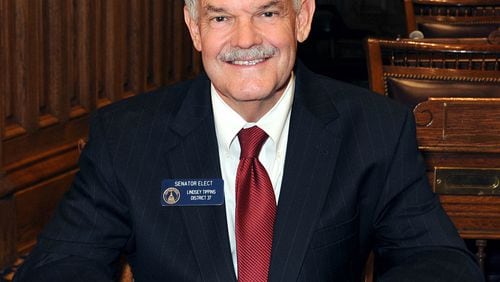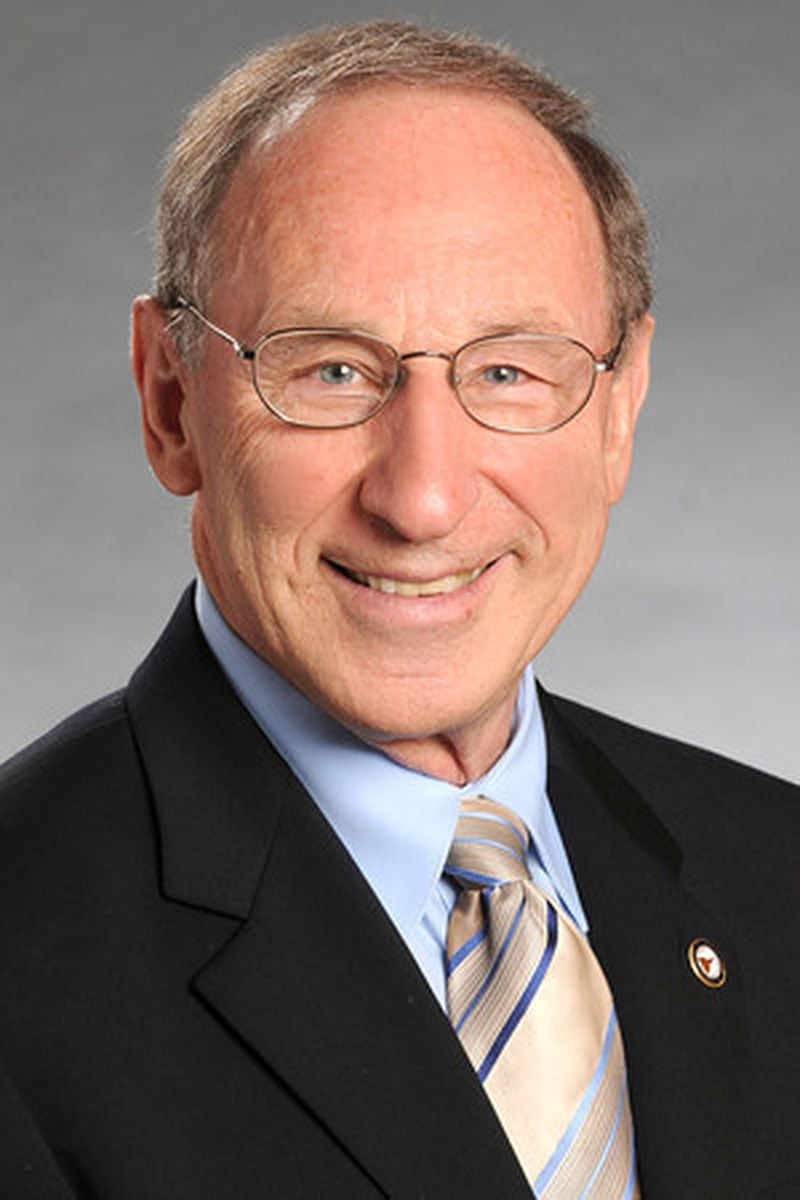Public schools are losing two critical allies in the Georgia General Assembly as the state prepares to elect a new governor this year.
State Sen. Lindsey Tippins, R-Marietta, resigned as chairman of the Senate Education and Youth Committee after differing with fellow Republicans on a bill that redirected more money to state-sanctioned charter schools, which resulted in funding them at a higher level than some rural schools in the state.
Tippins was the only Senate Republican to vote against the bill, which passed on the last day of this year’s legislative session. His argument: Some of those state charter schools were not delivering on their promise of academic achievement. Why not give the schools a financial boost only after they at least raise achievement levels to the state average?
But the GOP is committed to school choice, even if the choices aren’t very good or come at a cost to the traditional public schools attended by most Georgia students. In explaining his decision, Tippins told the AJC: “I didn’t see a fruitful future if the vast majority of the caucus is different than you on a critical issue.”
The state loses a second voice for balance in education policy in the retirement of Tippins’ House counterpart, state Rep. Brooks Coleman, a Duluth Republican. Coleman’s decision to retire from politics is wonderful for his grandkids, with whom he wants to spend more time, but a setback for the children of Georgia, according to advocates.
Coleman and Tippins were gatekeepers, and their departures could open the gates to a rush of lawmakers who only want to provide one thing to public schools — exit ramps.
“These two statesmen have been the guardians of traditional public education at the expense of other interests and have moderated numerous attempts to undermine our traditional schools,” said Jimmy Stokes, executive director of the Georgia Association of Educational Leaders. “Private school vouchers and scholarships, state charter schools, home school, and other non-traditional public school interests will move to the forefront in both the House and the Senate.”
“Georgia PTA is very disappointed to see the loss of not one, but both, champions of public education who have served as the Education Chairman in their respective chambers. Both Rep. Coleman and Sen. Tippins have been vocal advocates for safeguarding the dollars allocated to educate all of the children who attend public schools,” said Georgia PTA president-elect Karen Hallacy.
“As a Cobb parent, I had the pleasure of working with Sen. Tippins when he served as a school board member, and saw his tireless passion to ensure that every child who attended Cobb schools received a solid education. Rep. Coleman has spoken at countless PTA events and consistently inspired leaders at all levels to do more for our children and our schools. Georgia PTA has enjoyed working with both leaders and they will be missed by us,” said Hallacy.
A former school board member, Tippins recognized the challenges to public education, especially underfunding and overreliance on testing. While open to innovations such as charters, Tippins refused to jump aboard the “government schools” train.
“His reasonable, bipartisan-supported policies have rolled back over-reliance on standardized testing,” said Margaret Ciccarelli, director of legislative affairs for the Professional Association of Georgia Educators. “Tippins has consistently protected Georgia students and taxpayers from expansion of private school voucher tax credit schemes, and he has appropriately demanded that Georgia school choice programs show student progress in exchange for flexibility from state education laws.”
Instead of undermining Tippins’ leadership and support for public schools, Ciccarelli said, “Political leaders should be learning from his considerable experience and pragmatic example.”
Teachers can count on few champions in the Legislature, but Tippins was one of them. Amid the push two years ago to link teacher pay to school performance, Tippins argued that blaming teachers for low student achievement ignored the many social and family factors that influence a child’s success. “We don’t need to have a default position where teachers are the scapegoat for poor student achievement,” said Tippins.
Coleman always focused on students. After Georgia abandoned its high school graduation tests as ineffective, Coleman won a reprieve for the nearly 9,000 students denied a diploma for missing the cutoff on the tests. A state study found high school students who score higher on the graduation test had roughly the same college GPA as students who scored much lower.
“I had seen and heard from students who couldn’t get in college, who couldn’t get a job, who couldn’t get into the military, and it was heartbreaking,” said Coleman.
With Coleman and Tippins no longer vetting and blocking bad education bills, heartbreak may be back on the agenda.
“I am very concerned that the welfare of the 1.7 million traditional public school students and their teachers will see reduced emphasis and less support from the General Assembly unlike anything that we have seen since the days the General Assembly openly promoted segregation,” said Stokes. “Let us hope that wisdom and moderation prevail.”
“While we are very pleased and thankful that Gov. Deal is fully funding the QBE formula for the next fiscal year, we are concerned what will happen after that,” said Hallacy. “We have witnessed the willingness of legislators to nick funds from public education to serve private interests and without those two champions working hard to preserve that funding, public education and our students could find the funding again reduced and reallocated. We are concerned that, once again, our students in public education will be underserved by inadequate funding. We hope that equally strong, passionate advocates for our public schools, where more than 90 percent of our students receive their education, will be selected to serve as the next education chairmen. Georgia PTA looks forward to working with the next champions of public education.”








